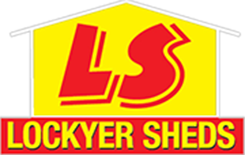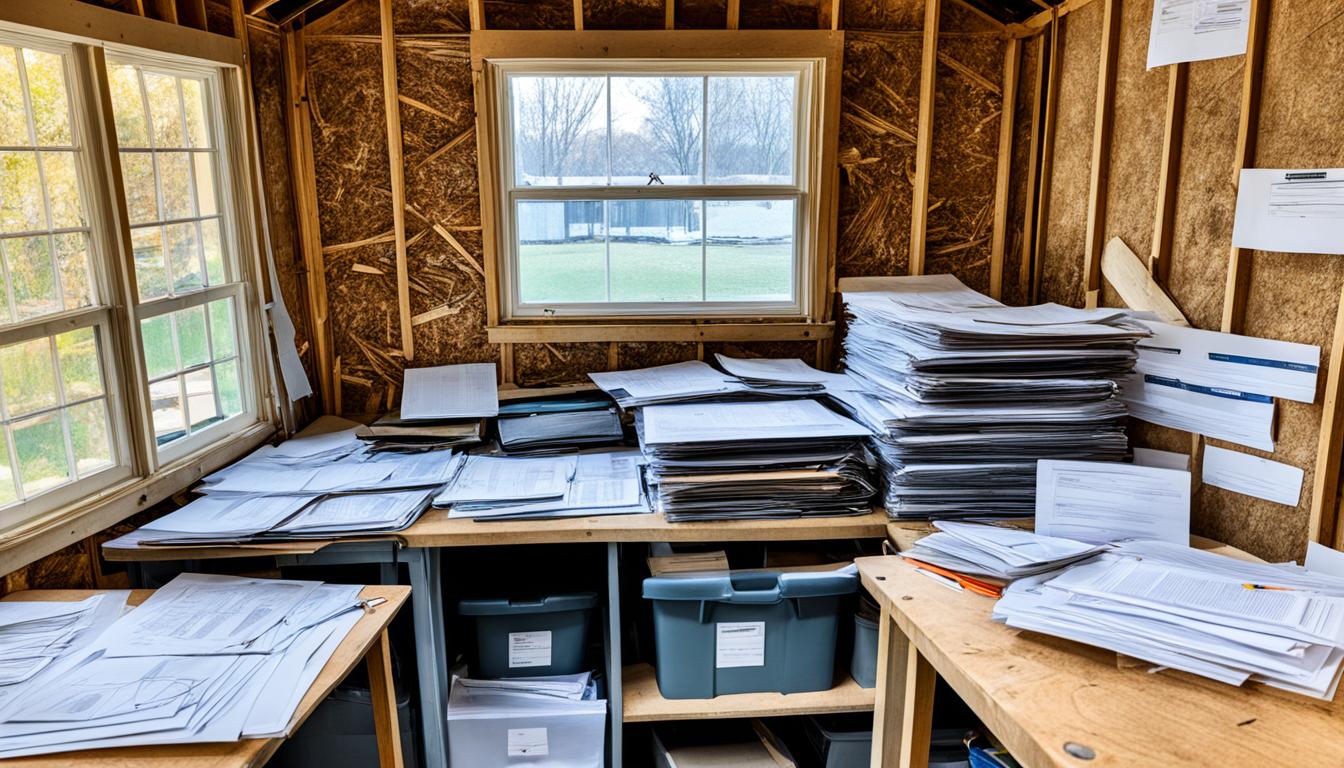Is a backyard shed in your plans? Have you checked on the shed permit rules and council regulations? It’s key to get the right shed approvals. This ensures you don’t face fines or legal troubles later.
Lockyer Sheds is your go-to for shed solutions in Toowoomba, Gatton, and more in Australia. Knowing your council’s shed permit rules is crucial. It keeps you in line with the law and avoids issues when building or selling.
This guide will cover everything about shed construction, zoning laws, and how to apply for a shed permit. Whether you’re looking at residential sheds or bigger buildings, we’ve got your back. Let’s start exploring the world of shed permits in Australia together.
Understanding Shed Permit Requirements
When you plan to build a backyard shed or a residential shed, knowing about local council shed requirements is vital. In Australia, most states require a shed permit if your shed is large or close to boundaries. This ensures the shed is safe and meets standards.
When is a Permit Required for a Shed?
In places like Victoria, you’ll need a permit if your shed is over 10m², taller than 3m, or close to boundaries. The rules also apply if your shed is attached to another building or structure. Getting a permit means your shed is safe and legal.
Council Approval for Residential Sheds
For residential sheds that are smaller, talking to your council’s planning department is wise. In some residential areas, you might need council approval. Different councils in Victoria have their own rules for sheds, so it’s important to check.
- Sheds are common structures that need building permits in Victoria, especially issued by CODEHQ.
- CODEHQ provides many services including shed permits, inspections, and ensuring pool barriers are safe.
- Getting a shed permit from CODEHQ is usually easy if you have all your required documents ready.
Shed Permits in Victoria
In Victoria, it’s important to know the rules for shed construction guidelines and shed zoning laws. You might not need a permit if the shed is small. But, bigger sheds might need a permit from your local council.
Building Permit Exemptions for Small Sheds
In Victoria, sheds that follow certain rules often don’t need a permit. These rules include the shed’s size and height, and how close it is to your property’s lines. Sheds must also be next to another kind of building on your property to qualify for this exemption. Additionally, they must not be made of masonry and should not be too far forward on the property.
Even sheds up to 3m high can be permit-free. They have to follow similar rules but also need to be 1m away from your boundary. Plus, they can’t be made of masonry and must be part of another building on the property. Again, they shouldn’t be too forward on your land.
Planning Permit Considerations
While small sheds might not need a permit, it’s still smart to check with your local council. They can tell you about any special rules or permit needs. The purpose of your shed, what it’s made of, and how close it is to your property lines are all important. They could affect whether you need a permit.
Additional Requirements for Shed Construction
For big shed projects and costly ones, you might need a professional builder. They could also need to be licensed. Sometimes, you’ll have to provide detailed plans, engineer reports, and your builder’s license if your shed’s large or special. This is especially true for sheds that are very big.
Always check with your local council for the latest rules in your area. The rules for shed construction guidelines and shed zoning laws can be different in each part of Victoria. If you build a shed without the right permit and the council finds out, you might have to pay a fine. They could even make you take the shed down.
Shed Permit Application Process
In Victoria, making sure you follow the right steps to get a shed permit is key. This helps you stick to the local rules and building standards. Here’s how to get your shed permit step by step:
Step 1: Check with Local Council
First, talk to your local council about your shed permit. Find out what you can and can’t do. They might have special rules on shed size, position, and more, so it’s important to know.
Step 2: Prepare Application Documents
Now that you know the rules, it’s time to prepare your paperwork. You’ll need to gather some important documents, including:
- Title documents (e.g., copy of title, plan of subdivision)
- Detailed site plan showing the proposed shed location and measurements
- Shed description, including materials, design, and dimensions
- Structural engineering details (if required for larger sheds)
Step 3: Submit Application to Building Surveyor
After organising your documents, you must submit your application. A qualified building surveyor, such as CODE HQ, will check it. They make sure everything follows the necessary rules.
Step 4: Await Permit Approval
The surveyor will look at your application. They may ask for more info or changes if needed. Once they’re happy with it all, you’ll get your permit approval. Then, you can go ahead and build your shed the right way.
Shed Permits
Getting the right shed permits is important. This is to make sure you follow the local council regulations and building standards. If you don’t get the permits, you might face fines or have to take down the shed. This can especially happen when selling your home.
In Victoria, if your shed or workshop is under 10m², you don’t need any approvals. Yet, if it’s 3m high or more and up to 10m², it doesn’t need a permit only if it follows certain rules.
Most structures, including sheds, will need council checking in Victoria. This is because rules can differ from place to place. You will need a building permit for big projects like a house, garage, or a swimming pool.
- Plans must be careful not to harm other buildings or block emergency exits. This is part of The Building Code of Australia.
- Large buildings above a certain size require a building license.
- Always check the local rules before starting your shed. Doing this can help you avoid fines and extra costs.
- For council approval, you’ll likely need detailed site plans and engineer papers.
- Make sure to ask your local council what specific documents you need for permits and licenses.
Victoria has many city councils, each with its own website for details on shed permits. Working with experts known as building surveyors can help. They make getting the permit smoother and avoid problems during your shed building.
New South Wales Shed Permit Guidelines
Planning to build a shed in New South Wales? First, get to know the local council’s shed regulations and council shed requirements. These rules will show you when you need shed approval or shed compliance certification.
Exempt Development Requirements
Some sheds and outbuildings are “exempt developments.” This means you might not need council shed approval if they fit certain criteria. These criteria are usually about the shed’s size, height, distance from boundaries, and what they’re made of.
- In residential areas, you can build sheds up to 20m² without council shed approval.
- In rural zones (RU1, RU2, RU3, RU4, and R5), sheds up to 50m² don’t need council shed requirements.
- These exempt sheds can’t be taller than 3m from the ground.
- They must be at least 900mm away from property lines for shed compliance.
- Sheds can’t block other building’s safety exits or doors.
- If in residential areas, sheds need to use materials that don’t reflect much light to be exempt from shed regulations.
Development Application or Complying Development Certificate
If your shed plan doesn’t meet the exempt development requirements, you’ll likely need a development application (DA) or a complying development certificate (CDC). You must do this to ensure your shed follows the local shed regulations and building codes.
Neighbour Considerations
It’s a good idea to tell your neighbors about your new shed, even if you don’t need council shed approval. This step can ease any worries they might have. Problems like blocked views, shadows, or losing space can be dealt with if they know early.
Outbuildings and Bushfire Management Overlay
If you live in a bushfire-prone area, your council shed requirements may be different. The Bushfire Management Overlay (BMO) sets out rules for building sheds. It guides you to make sure your shed has enough fire protection.
Permit Exemptions for Small Outbuildings
Small outbuildings under 100 square meters and not for living don’t always need a permit. This rule makes it easier to build small sheds. You can start the process without a long review.
Streamlined Application for Larger Outbuildings
If your shed meets certain safety standards – like being over 100 square meters – you might skip a fire safety check. Yet, bigger sheds not meeting these rules must get fire authority approval. They follow regular application steps.
Shed review in bushfire zones checks:
- Local and area bushfire risks
- How close you are to bushfire dangers
- Where your outbuilding sits compared to other buildings and plants
- Review for a simpler process if your fire safety is top-notch
- If the neighbor’s vegetation helps shield your property
To follow council shed rules properly, use the guides and forms provided. These Resources help you know what’s needed for your shed.
Choosing a Professional Building Surveyor
Constructing a shed in Australia? CODE HQ, a professional building surveyor, is your go-to. They help with the shed permit application process. This ensures your project fits all rules, such as the Building Act 1993 and the Building Regulations 2018.
CODE HQ will help with the paperwork needed for your shed permit application. Things like site plans, designs, and how the shed will stand. They check your application right, making it easier to get through with local councils or authorities.
In Australia, building surveyors make sure building work follows the law. Hiring a private surveyor, like CODE HQ, comes with benefits. They give specific step-by-step advice, check the building site as it goes up, and boost your chances of getting the shed permit approved.

